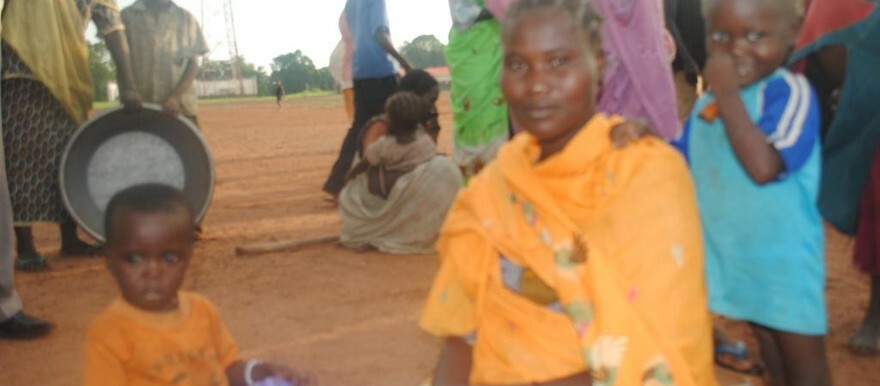Nearly 4,000 South Sudanese who have recently arrived from the Darfur region of Sudan to Raja County in Western Bahr el Ghazal State are facing a dire shortage of food, clean drinking water, shelter, and medication. The humanitarian situation in Boro Madina, where they are currently seeking refuge, is rapidly deteriorating.
Fiaza Mahadi, a women’s representative of the returnees, spoke with Radio Tamazuj via phone from Boro Madina on Friday. She highlighted the critical challenges they are facing, stating, “We don’t have anything to eat. We are 3,800 people, and there is no food, no water, and there is no accommodation. There is nothing.”
She went on to explain their predicament further, saying, “We are facing a problem of food, drinking water, clothes, treatment, and plastic sheets. We have new arrivals with children; some arrived 17 days ago, some 15 days, and some a month ago, and they are exhausted due to the long distance they travelled from Darfur to Raja County.”
The dire circumstances have forced the returnees to improvise for survival. Fiaza Mahadi shared, “Right now, others live in the market and schools, while men are doing casual work in gardens, cutting grass and firewood, while women are washing clothes for others to get food. We are suffering as I speak.”
She issued an urgent plea for assistance from humanitarian agencies operating in South Sudan, stating, “We are calling on humanitarian agencies to help us. Our first need is food and water. We don’t have access to treatment, and when someone is sick, we cannot afford SSP 500 to buy drugs. We don’t have soap, and we are experiencing heavy rains.”
Additionally, they have constructed shelters but lack plastic sheets for protection from rain. Fiaza pointed out that the inhabitants of Boro Madina are also facing severe hardships, sharing the same dire conditions as the returnees.
Another returnee, Mohamed Suleiman, acknowledged the government’s role in ensuring their security in Boro Madina but emphasized their pressing need for food and their vulnerability to the rainy season. He stated, “The government is good. We are protected but we don’t have food, and the rainy season is affecting us. We don’t have plastic sheets. We are getting sick from malaria.”
Meanwhile, Dahyia Hassen Dayia, the Chief of Boro Madina, acknowledged the high population of returnees and echoed their calls for humanitarian aid. He appealed to both international and national humanitarian organizations to intervene, emphasizing the urgent need for plastic sheets, blankets, and food. Dahyia underscored the importance of finding accommodation for the returnees and urged the government and organizations to extend their support.




